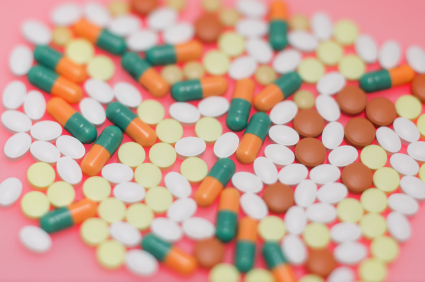It Appears Antidepressants and Stimulants Do Not Hasten the Onset of Bipolar Disorder in Children
It is a common clinical assumption that early treatment of depression with antidepressants may be a risk factor for hastening the onset of subsequent bipolar disorder. Accumulating evidence indicates that this may not be the case. At a symposium at the 2012 meeting of the American Academy of Child and Adolescent Psychiatry (AACAP) researchers in the field shared the latest findings on antidepressant-induced manic symptoms in youth (AIMS), and there was a surprising consensus that antidepressants do not increase the risk of subsequent bipolar disorder onset when used for the treatment of childhood-onset depression.
Symposium speakers Kiki Chang, Melissa P. DelBello, and David Axelson all agreed that antidepressant treatment was not a risk factor for bipolar disorder.
DelBello shared data from a study in which antidepressant treatment was associated with a lower likelihood of mania during follow-up. Antidepressants were typically discontinued if the patient switched into manic-like symptoms or increased irritability or aggression. These symptoms tended to occur in children who were younger, who had a smaller volume of the amygdala, and in those who had a positive family history for bipolar disorder in first-degree relatives.
Axelson indicated that his data represented only a “bird’s-eye view,” but suggested that antidepressants do not cause or hasten the onset of bipolar disorder when used for treating depression in children. He also reported results from a naturalistic study in which stimulants also did not increase the risk of subsequent bipolarity.
Several of the presenters discussed how they would treat children with an early-onset depression when there is a family history of bipolar disorder. DelBello indicated that there is not enough data to give a definitive answer, but suggested the use of family focused therapy (FFT), omega-3 fatty acids (3g per day), and possibly the medications lamotrigine, atomoxetine, or asenapine.
Boris Birmaher, the discussant of the symposium, reiterated that there are few systematic data to guide therapeutics of childhood onset depression. However, he suggested first-line treatment with psychotherapy and second-line treatment with a selective serotonin reuptake inhibitor (SSRI) or bupropion. In addition he suggested that SSRIs not be used in cases of mixed presentations (where both manic and depressive symptoms are present) or when the patient experiences rapid cycling. He also suggested the possible use of high-intensity light or omega-3 fatty acids.
Editor’s Note: The naturalistic data presented at this symposium, although preliminary, suggest that antidepressants do not increase the onset of mania in children. Limited data from Axelson and collaborators also suggest that this is the case for stimulant exposure, although these results were also based on naturalistic data rather than randomized controlled data, which would be preferable.
The other consensus describes a troubling phenomenon we have written about before. All of the presenters and discussants indicated that strategies for treating youth with early-onset depression cannot be derived from a systematic database based on controlled clinical trials, since these have not yet been conducted. Treatment strategies for children with depression, especially in the context of a family history of bipolar disorder, currently rely only on expert opinion, clinical intuition, and guesswork. The consensus of these researchers highlights the terrible dearth of treatment outcome studies for this important group of children, especially since childhood-onset depressive disorder carries a more difficult prognosis than the adult-onset variety.


